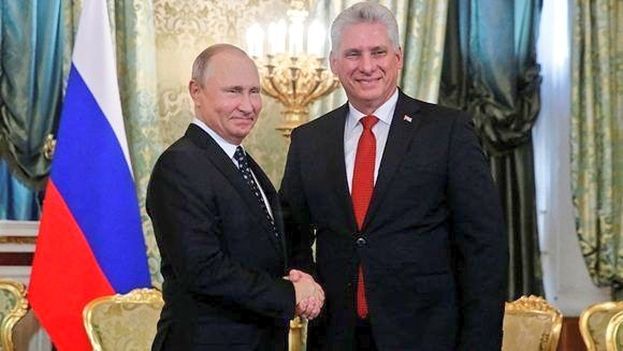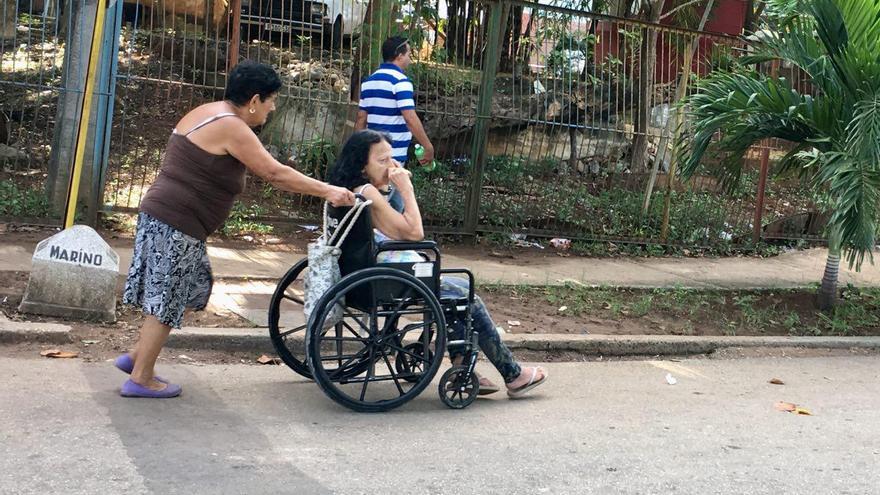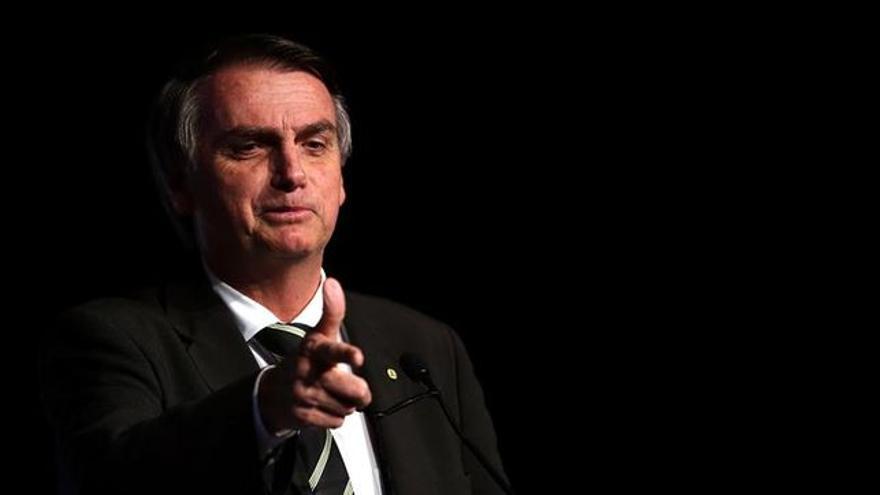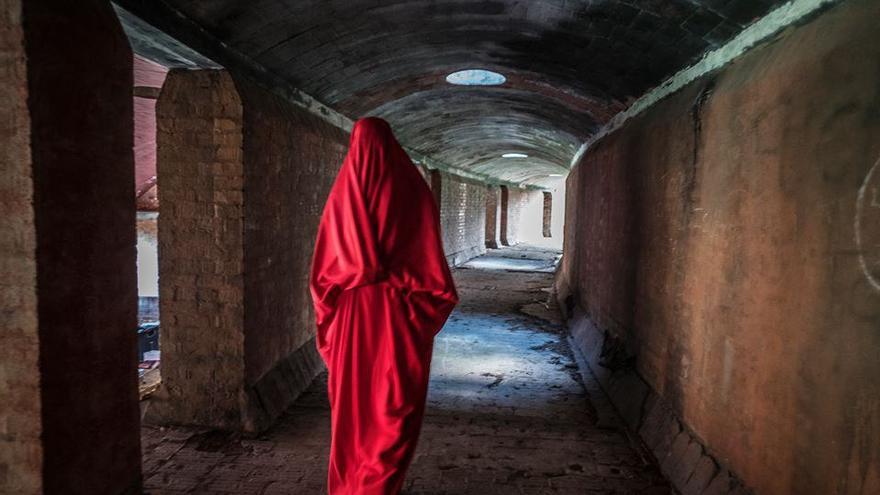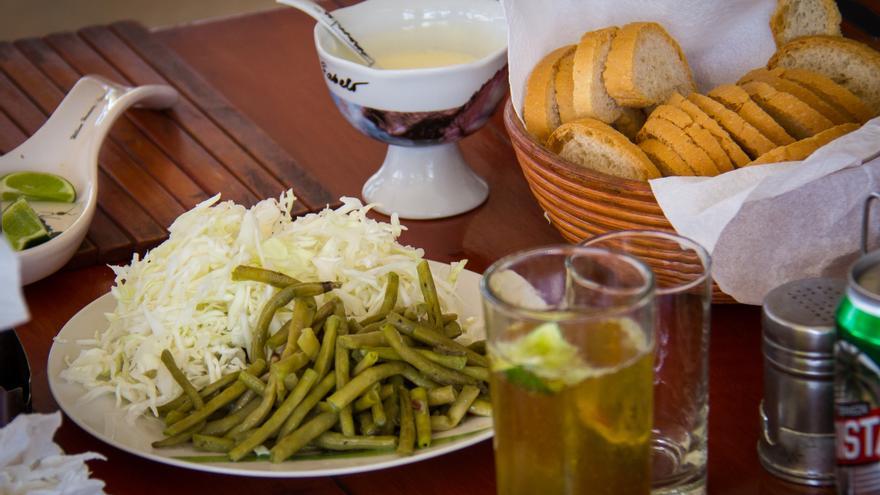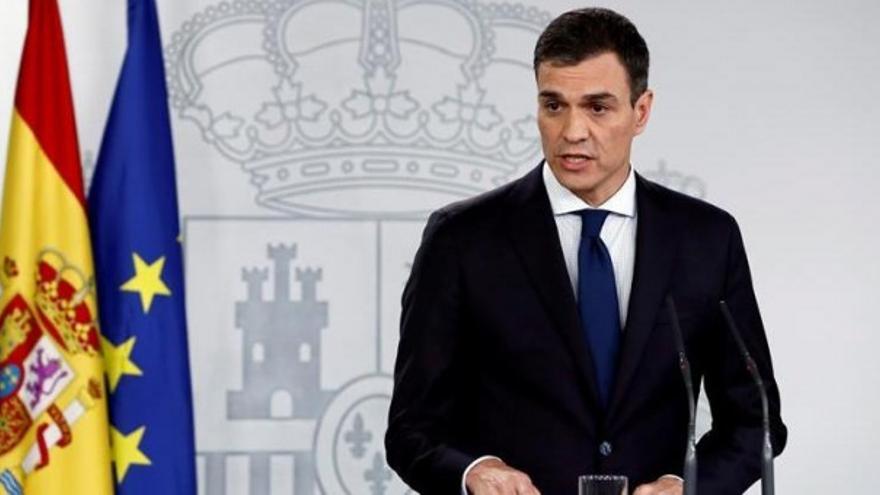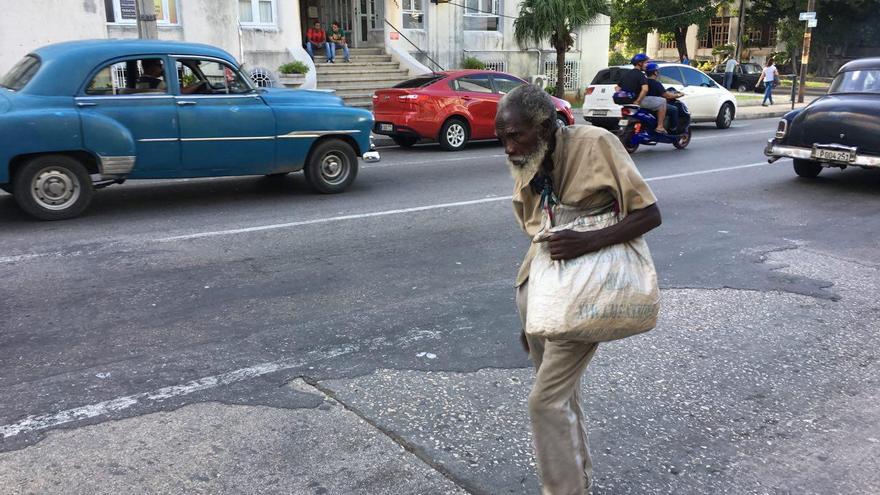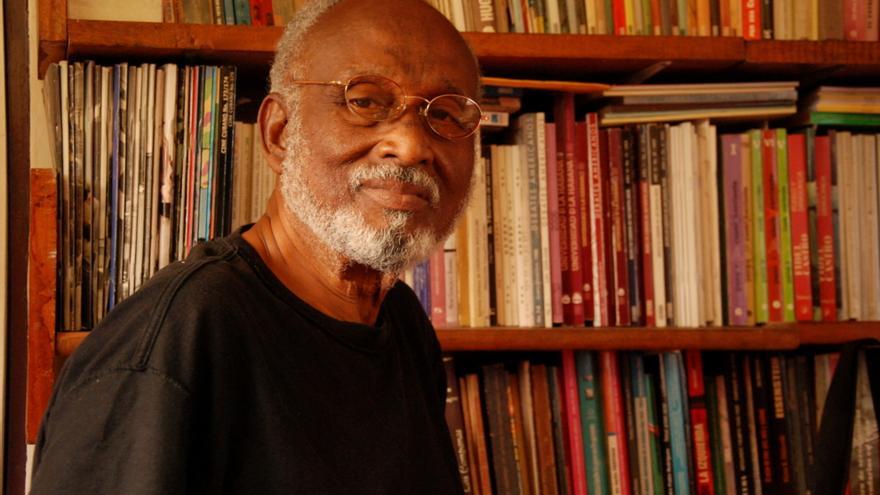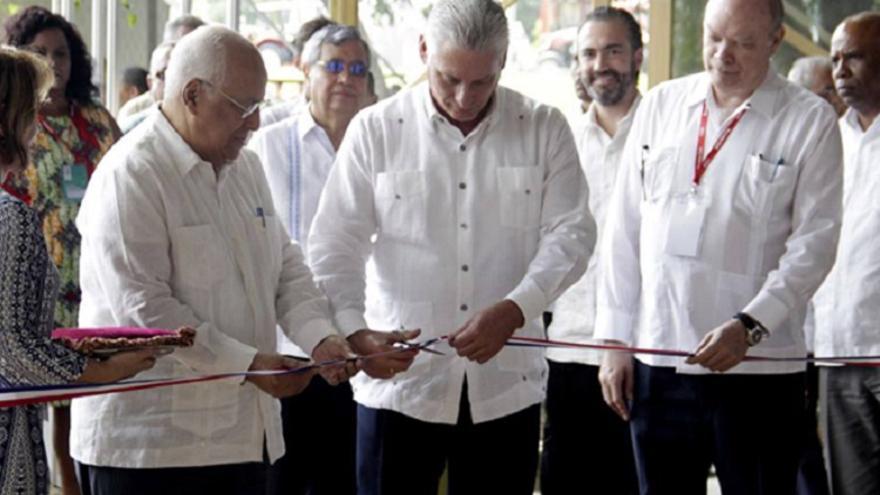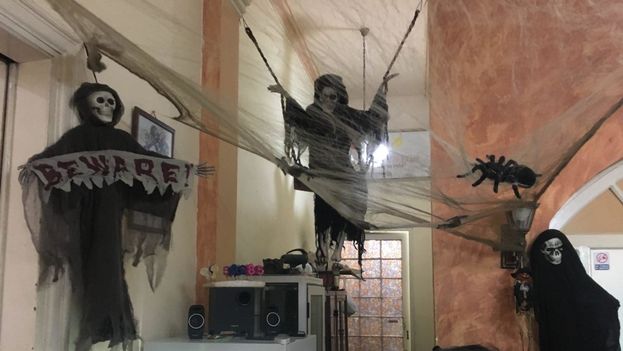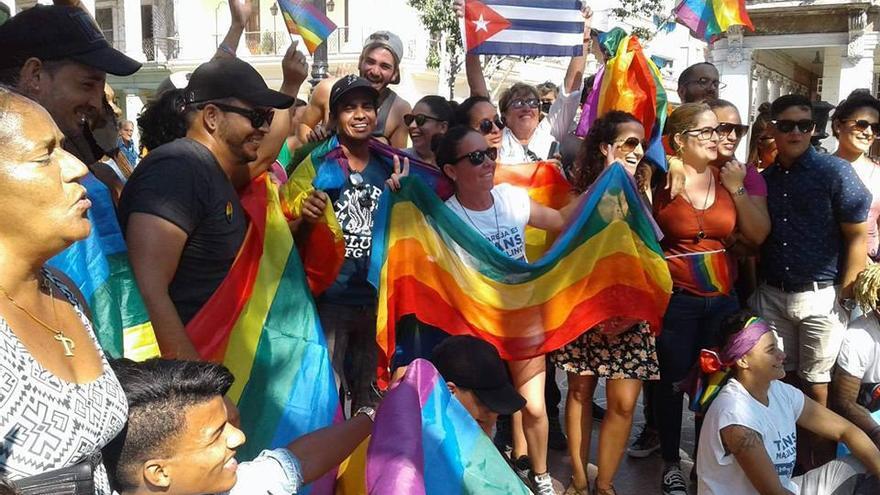For decades, meat has been an almost sacred food in a country where cattle ranching has been in decline due to the excesses of nationalization and restrictions on private producers. The strict legislation, which criminalizes the slaughter of cattle with long prison sentences, has resulted in foods made with meat becoming even more desired.
“When I visit a friend and tell him that I’m not going to eat the steak he offers me or the ropa vieja [literally ’old clothes’, a dish made with shredded meat] that he prepared with a lot of effort, it’s like he’s offended,” Macias tells 14ymedio. “At the beginning it was like a battle every day, to get my family to respect this decision but they no longer try to impose any foods on me.” continue reading
A study conducted by the anthropologist Margalida Mulet Pascual confirmed that after the
Special Period of the 90s — a time of great deprivation after the breakup of the USSR and the loss of its subsidies to Cuba — “food uncertainty” led many families to prioritize “the importance of meat and derivatives (such as sausages, croquettes, etc.) and consider other food, such as salads and fruits, less essential for optimal nutrition.”
Mulet Pascual says that in the Cuban collective imagination there is a concept of “supremacy of animal protein” and an insufficient evaluation of other foods such as fruits and vegetables. Three thirds of the dish are filled with meat products, carbohydrates or fried foods, to the detriment of vegetables or other agricultural products.
“If you feel ill there is always someone who tells you that what you need is a good soup of chicken or meat, if you look tired then they recommend a steak and there are even those who say that if you have not had a piece of chicken, a sausage or some pork rinds that day, then you have not eaten,” laments Ana Laura Macias.
With the increase in the arrival of tourists in recent years, paladares (private restaurants) and hotels have been pushed to expand their vegan and vegetarian offerings. “Before, when a foreigner came and said he did not eat meat, we invented a dish but now we have our own recipes,” explains an employee at El Café, a private restaurant in Old Havana with a wide range of vegan and vegetarian options.
“Cubans who do not eat meat have been coming for a while, and that’s a novelty, because before we only had vegan or vegetarian customers who came from other countries,” says the private sector worker. “Among young people the practice of not eating meat products is growing and there are groups that promote it,” he adds.
At the end of the 90s, vegetarian restaurants under state management emerged throughout the Island. The creation of these places was promoted by Fidel Castro but, like many of his campaigns, it also ended up losing steam until it disappeared. Since then, vegan and vegetarian gastronomy has been led by the private sector.
“Almost all paladares already have several dishes without animal products and there are numerous restaurants dedicated exclusively to a vegan and vegetarian clientele,” explains Massiel, a young entrepreneur who, with her mother, manages a place in Vedado where they sell “dishes free of animal protein,” she explains proudly.
Massiel lived in Madrid for almost a decade and in that city she was inspired to create her menu of offerings. Tofu, soy milk, seeds, burgers made from beans and lentil pasta, cheese-free pesto and fruit smoothies without added sugar are some of the options they sell. “We are pretty full every day, with foreigners and Cubans, so there is a demand, without a doubt,” explains Massiel.
Some of these products are not sold in the markets of the Island but Massiel and her mother alternate traveling to Cancun or Panama City and bring back in their luggage some ingredients that are missing on the Island. “From there we bring the almonds, pistachios, nuts and even some cereals to make our own gluten-free bread.”
The young woman hopes that soon a wholesale market for the private sector will open on the island but, above all, “that the stores won’t only have the same products as always but also have variety and diversity so that gastronomy can develop and diversify,” she says.
This New Year’s eve, Massiel’s restaurant will offer an “all vegan” dinner for families who want to celebrate 2019 with this type of food. “Telling a Cuban that they are going to spend the party on December 31st without eating meat was, a few years ago, like insulting them, but now more and more people are interested, especially the younger ones who have a greater awareness of their health and the environment.”
Ludmila and Raudel, both graduates of economics at the University of Havana, have been vegans for more than five years. They decided to assume that lifestyle for reasons ranging from their physical condition to the care of nature, the young woman explains to 14ymedio. “At first they looked at us as if we were extraterrestrials but now people are more aware that this is a life decision that everyone has the right to make.”
Ludmila cooks for herself, her boyfriend and the rest of the family. “It’s complicated because for us two I have to prepare everything free of animal products but my parents do eat meat.” The economist says that “although it is sometimes more difficult to find fresh fruits and vegetables, the truth is that we save a lot of money by not having to buy meat which is always the most expensive.”
Ludmila’s parents define themselves as “omnivores” because they eat everything. When their daughter decided to become a vegan, they “screamed blue murder,” recalls the young woman. “Little by little, they have come to understand but it is not easy for them, because they still see meat as something that should never be rejected,” she says.
In 2015, the World Health Organization (WHO) generated a stir by declaring that processed meat such as sausages, hamburgers or sausages increase the risk of cancer. These products were included in the group of substances most dangerous to health along with tobacco smoke, alcohol, contaminated air and plutonium.
The information was barely disseminated in Cuba where, up until now no school has a curriculum about the basics of nutrition for students so they can choose a healthier diet, as confirmed by this newspaper with officials of the Ministry of Education in Havana.
Also, there has never been an island-wide survey of food consumption habits. However, an investigation carried out by the Institute of Nutrition and Food Hygiene showed that Cubans prioritize “the satisfaction of the needs of fats, proteins and sugar, to the detriment of the consumption of healthy options such as vegetables and fruits.”
“Poor nutritional quality, imbalance, and monotony characterized both actual food consumed and that desired,” concludes the study that urged “training the Cuban population in knowledge about healthy eating, as well as increasing the availability and accessibility of healthy foods.”
______________________
The 14ymedio team is committed to serious journalism that reflects the reality of deep Cuba. Thank you for joining us on this long road. We invite you to continue supporting us, but this time by becoming a member of 14ymedio. Together we can continue to transform journalism in Cuba.
![]() 14ymedio, November 4, 2018 — The Cuban Lázaro Miguel Gutiérrez Bacallao had to board an airplane bound for Cuba this Friday after remaining stranded in El Dorado airport, in Bogotá, Colombia, since October 14, as confirmed to 14ymedio by an official of Colombian Migration.
14ymedio, November 4, 2018 — The Cuban Lázaro Miguel Gutiérrez Bacallao had to board an airplane bound for Cuba this Friday after remaining stranded in El Dorado airport, in Bogotá, Colombia, since October 14, as confirmed to 14ymedio by an official of Colombian Migration.
